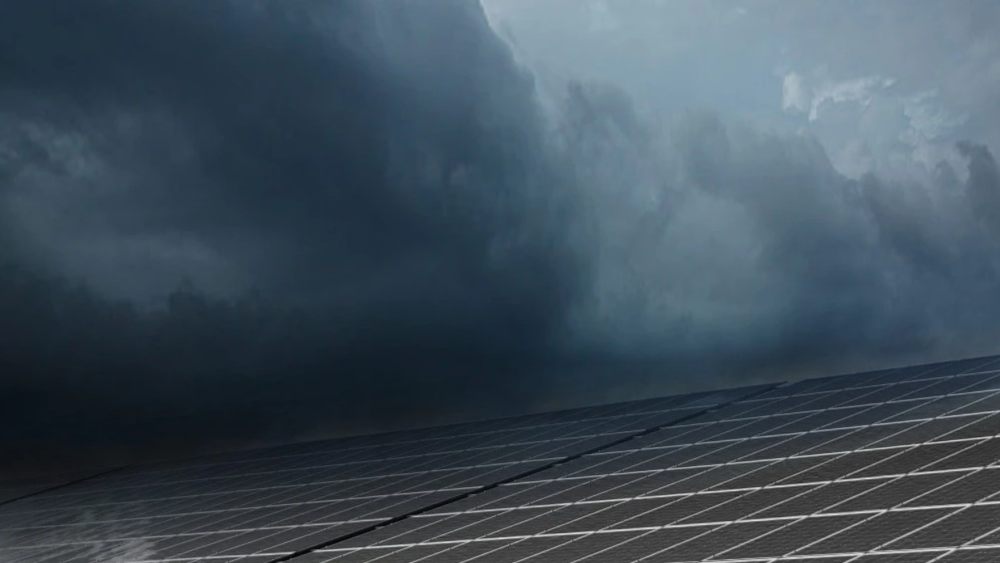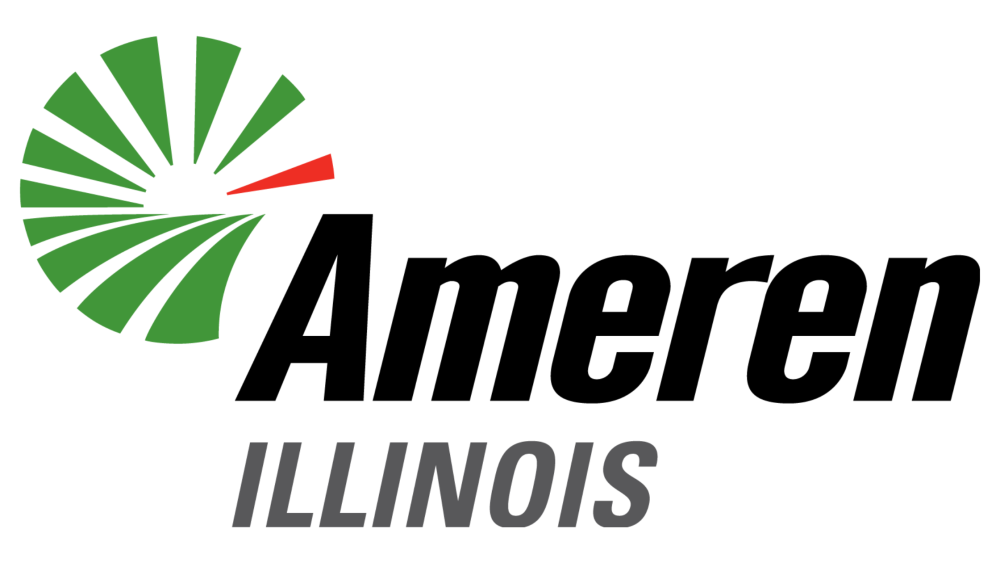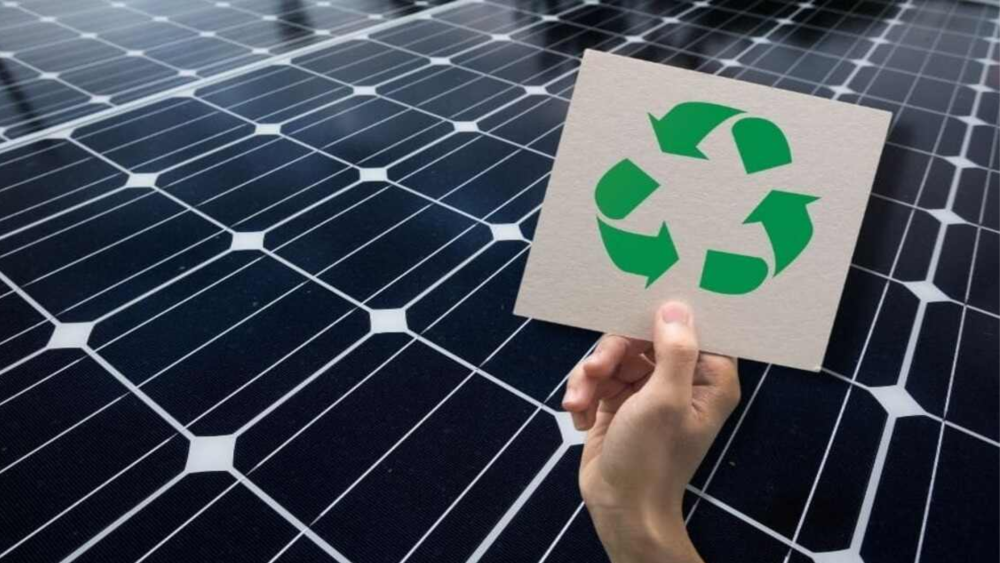Try our solar cost and savings calculator
What solar incentives are available in Nebraska?
As a homeowner in Nebraska, you have access to several different tax incentives that make solar panels more affordable. Solar incentives are available at both the federal and state levels to help you save thousands on your investment in solar energy.
Solar Calculator is here to help you take the next step in your transition to renewable energy. Below, we’ll discuss some of the different ways you can make solar more affordable.
Federal solar incentives
As part of the Inflation Reduction Act of 2022, congress passed several clean energy provisions to reduce energy costs. Among those provisions was an extension and upgrade of the Federal Investment Tax Credit (ITC).
Federal Investment Tax Credit
The Federal ITC allows you to claim 30% of your total equipment and installation costs on your federal taxes. There is no minimum or maximum amount you can claim and it includes equipment, installation, permitting, and even battery storage.
The ITC will remain at 30% until December 31, 2032. After that it will be reduced to 26% until December 31, 2033, then to 22% the following year. The ITC is currently set to disappear in 2035 unless it is renewed.
Who is eligible for the Federal ITC?
Most homeowners will qualify for the Federal ITC, but not all. You must meet the following criteria to claim your 30% tax credit:
The Federal ITC will also cover the following expenses:
Homeowners save around $10,000 on average with the Federal ITC. But that number can be higher or lower depending on your total expenses.
How to claim the Federal ITC
Claiming your Federal ITC couldn’t be easier. All you have to do is fill out IRS form 5695 and submit it with your tax return. You can consult with a tax professional for more assistance.
Local solar incentives
Who’s eligible : Commercial, Industrial, Local Government, Nonprofit, Residential, Schools, State Government, Federal Government, Agricultural, Institutional
How to apply : In May 2009, Nebraska enacted L.B. 436, which established statewide interconnection and net metering rules for all electric utilities in Nebraska. Eligibility and Availability Utilities are required to provide interconnection and net metering for a customer-generator’s “qualified facility,” which generates electricity from an energy source of solar, methane, wind, biomass, hydropower, or geothermal and has a rated capacity at or below 25 kilowatts (kW). Utilities are required to offer net metering until the aggregate generating capacity of all customer-generators equals 1% of the utility's average aggregate monthly peak demand for that year. Upon reaching the 1% threshold, a utility can choose whether to offer more net metering capacity. A utility may enter into other arrangements with customers desiring to install electric generating equipment and may also provide net metering to customer-generators having renewable generation units with a rated capacity above 25 kW. For example, Lincoln Electric Systems (LES) allows owners of qualifying facilities that have a production capacity limit of 100 kW or less to either sell the entire electrical output of qualifying facilities to LES or use the electrical output of qualifying facilities to instantaneously supply all or a portion of their own load and sell the instantaneous surplus, if any, to LES. Customer-generators retain all renewable energy credits (RECs) associated with the electricity their system generates. Net Excess Generation Any net excess generation (NEG) produced by the qualifying facility during the month will be credited at the utility's avoided cost rate for that month and carried forward to the next billing period. Any credited NEG remaining at the end of an annualized period will be paid out to the customer-generator. Consumer may be billed for the non-energy charges (including but not limited to the basic service, demand, and minimum billing charges) as set forth in the applicable standard rate schedule. Resources More information on utility net metering policies can be found at the following websites: Lincoln Electric Systems – Customer-Owned Generation Nebraska Public Power District - Net Metering Rider Omaha Public Power District – Net Metering For utilities not listed here, please contact them directly for specific policies and procedures.
Who’s eligible : Commercial, Industrial, Local Government, Nonprofit, Residential, Schools, State Government, Federal Government, Installers/Contractors, Agricultural, Multifamily Residential, Institutional
How to apply : In May 2009 Nebraska established statewide interconnection and net metering rules for all electric utilities in Nebraska (see L.B. 436 ) . Process The customer-generator must pay for costs incurred by the local distribution utility for equipment or services required for interconnection that would not be necessary if the qualified facility were not interconnected to the local distribution system, except the utility is required to provide at no additional cost to any customer-generator with a qualified facility a metering system that is capable of measuring the flow of electricity in both directions. To be eligible, a qualified facility must meet all applicable safety, performance, interconnection and reliability standards established by the National Electric Code and adopted by the State Electrical Board, the National Electric Safety Code, and the Institute of Electrical and Electronics Engineers. The qualified facility must also be capable of automatically isolating itself from the electrical grid. Customers must request an inspection of their system from the State Electrical Division and provide documentation of the completed inspection to their utility before the system may be interconnected to the distribution grid. The utility may not require a customer-generator to purchase additional liability insurance if all safety and interconnection requirements are met. System Capacity Requirements Utilities are required to provide interconnection and net metering for a customer-generator’s “qualified facility,” which generates electricity from an energy source of solar, methane, wind, biomass, hydropower, or geothermal and has a rated capacity at or below 25 kilowatts (kW).
Who’s eligible : Commercial, Industrial, Local Government, Residential, Federal Government, Multifamily Residential
How to apply : In 2010, the Federal Housing Finance Agency (FHFA), which has authority over mortgage underwriters Fannie Mae and Freddie Mac, directed these enterprises against purchasing mortgages of homes with a PACE lien due to its senior status above a mortgage. Most residential PACE activities subsided following this directive; however, some residential PACE programs are now operating with loan loss reserve funds, appropriate disclosures, or other protections meant to address FHFA's concerns. Commercial PACE programs were not directly affected by FHFA’s actions, as Fannie Mae and Freddie Mac do not underwrite commercial mortgages. Visit PACENation.org for more information about PACE financing and a comprehensive list of all PACE programs across the country. The Property Assessed Clean Energy Act was signed on April 13, 2016. This law allows municipalities to create clean energy assessment districts. Municipalities that create such districts may enter into contracts with qualifying property owners and (if participating) third-party financiers to provide financing for energy efficiency and renewable energy projects on the qualifying property. The projects are paid back through assessments on the owner's property taxes. Check with your local Nebraska Municipality to see if PACE financing is available.
Who’s eligible : Industrial, Investor-Owned Utility, Municipal Utilities, Cooperative Utilities, Installers/Contractors
How to apply : Nebraska allows for a refund of the sales and use taxes paid for a renewable energy system used to produce electricity for sale. Investment in qualified property of at least thirty million dollars or for the production of electricity by using one or more sources of renewable energy to produce electricity for sale as described in subdivision (1)(j) of section 77-5715, investment in qualified property of at least twenty million dollars. The law describes eligible sources of renewable energy as including, but not limited to, wind, solar, geothermal, hydroelectric, biomass, and transmutation of elements. This refund does not apply to the first 1.5% of sales tax charged by a municipality. Note that partial recapture of benefits is possible if the taxpayer or tax-paying entity does not maintain the number of equivalent employees as they had in the base year. More information can be found here.
Who’s eligible : Commercial, Construction, Industrial, Local Government, Nonprofit, Residential, Schools, State Government, Federal Government, Agricultural, Multifamily Residential, Institutional
How to apply : Nebraska's solar and wind agreement provisions allow property owners to create binding solar and wind easements, among other types of agreements, for the purpose of protecting and maintaining proper access to sunlight and wind. The initial term of a wind agreement may not exceed 40 years. Additionally, a wind agreement will terminate if development has not commenced within 10 years of the effective date of the wind agreement. If all parties involved agree to extend this period, however, the agreement may be extended. Wind developers are required to ensure decommissioning funds are available for inactive systems. Local Ordinances and Zoning Local governments are given discretion to create zoning regulations or ordinances and comprehensive development plans. that encourage the use of solar energy and wind energy use and the protection of access to solar energy and wind energy. Such considerations may include, but not be limited to, regulation of height, location, setback, and use of structures, the height and location of vegetation with respect to property boundary lines, the type and location of energy systems or their components, and the use of districts to encourage the use of solar energy systems and wind energy conversion systems and protect access to solar energy and wind energy. Comprehensive development plans may contain an element for protection and development of solar energy and wind energy access which will promote energy conservation and ensure coordination of solar energy and wind energy use with conventional energy use. (N.R.S. 66-913) Severability “No interest in any wind or solar resource located on a tract of land and associated with the production or potential production of wind or solar energy on the tract of land may be severed from the surface estate,” (N.R.S. 66-912.02).
Can you claim multiple tax incentives in Nebraska?
Yes. You are allowed to claim multiple solar incentives for the same installation. However, you can only claim each incentive once. For more guidance on how to claim your solar tax incentives, talk to your installer or consult with a licensed tax professional before submitting your tax forms.
Does Nebraska offer tax exemptions?
Net Metering
Category : Regulatory Policy
Website :
Applicable Sectors : Commercial, Industrial, Local Government, Nonprofit, Residential, Schools, State Government, Federal Government, Agricultural, Institutional
Incentive Amount :
Implementing Sector : State
Interconnection
Category : Regulatory Policy
Website :
Applicable Sectors : Commercial, Industrial, Local Government, Nonprofit, Residential, Schools, State Government, Federal Government, Installers/Contractors, Agricultural, Multifamily Residential, Institutional
Incentive Amount :
Implementing Sector : State
Rebate Program
Category : Financial Incentive
Website : https://www.midamericanenergy.com/home-rebates-and-programs
Applicable Sectors : Residential
Incentive Amount : Natural Gas Furnaces: $450/unit Natural Gas Furnace and Boiler Tune-Up: $50 Natural Gas Storage Water Heaters: $150/unit Tankless Natural Gas Water Heaters: $250/unit
Implementing Sector : Utility
Category : Financial Incentive
Website : https://www.oppd.com/business/products-services/
Applicable Sectors : Commercial, Industrial, Federal Government
Incentive Amount : Lighting: Incentives vary widely by type of lighting. See the program site for more information. HVAC: Up to $100,000 of equipment cost Advanced Rooftop Unit Controller: $135 - $207/ton Custom Incentive: 500/kW of peak demand reduced
Implementing Sector : Utility
Category : Financial Incentive
Website : http://www.nppd.com/save-energy/for-your-home/
Applicable Sectors : Construction, Residential, Installers/Contractors
Incentive Amount : Smart Thermostat: Up to $100 Air Source Heat Pump: $400-$1,200/unit Ductless Mini-split Heat Pump: $400-$1,200/unit Geothermal Heat Pump: $2,400-$3,300/unit Heat Pump Water Heater: $400 - $650 Cooling System Tune-Up: $30 Attic Insulation: $0.30/sq. ft. Level 2 RV Charging Station: up to $500
Implementing Sector : Utility
Category : Financial Incentive
Website : https://southernpd.energywisenebraskagoev.com/
Applicable Sectors : Commercial, Nonprofit, Residential
Incentive Amount : Residential Chargepoint charging station: $500 EVSE pre-wiring: $400 or 100% of the cost (maximum of $600) for existing structures for in-home pre-wiring for the installation of an electric vehicle charging station. Commercial New Commercial Conduit Construction: 100% reimbursement up to $1,000 EV Chargers: $200/kw of charging station capacity, capped at 50% of cost Non-Profit 90% reimbursement for the installation of an EV charging station. Grants, discounts, etc., are deducted to determine customer’s cost. Incentive is based on the lower of two qualified bids.
Implementing Sector : Utility
Category : Financial Incentive
Website : https://www.les.com/sustainability/sustainable-energy-program
Applicable Sectors : Commercial, Industrial, Residential
Incentive Amount : Varies by equipment type and efficiency rating; see program website for complete details
Implementing Sector : Utility
Category : Financial Incentive
Website : https://southernpd.energywisenebraska.com/residential/
Applicable Sectors : Construction, Residential, Installers/Contractors
Incentive Amount : Smart Thermostat: up to $100 Induction Cooktop: 20% incentive Heat Pumps: $400 - $3,300 Attic Insulation: $0.30/sq. ft. HVAC Tune-Up: $30 Heat Pump Water heater: $300-$680
Implementing Sector : Utility
Category : Financial Incentive
Website : https://southernpd.energywisenebraska.com/business/
Applicable Sectors : Commercial, Industrial
Incentive Amount : Other incentives not included here are listed on the website Prescriptive Lighting Varies widely by fixture type. See program website for full information Commercial HVAC Air Conditioner: $30/ton Air Conditioner – Variable Capacity: $60/ton Air Source Heat Pump : $60 - $120/ton Air Source Heat Pump – Variable Capacity: $150/ton Water Source Heat Pump: $150/ton Geothermal Heat Pump: $330/ton Air Source HP Water Heater: $400 Water or Ground Source HP Water Heater: $650 Custom Lighting — Annual kWh energy savings x $0.07 per kWh — 50% of associated costs to complete installation
Implementing Sector : Utility
Category : Financial Incentive
Website : http://www.nppd.com/save-energy/for-your-business/
Applicable Sectors : Commercial, Industrial, Local Government, Nonprofit, State Government, Federal Government
Incentive Amount : Prescriptive Lighting: Varies widely based on fixtures Custom Lighting: $0.07 per kWh saved or 50% of associated costs, whichever is less Variable Frequency Drive: $30/hp Industrial Processing Equipment: up to 50% of cost Air Source Heat Pump Water Heater: $400 Water or Ground Source Heat Pump Water Heater: $650 Air Conditioners: $30 - $60/ton Heat Pumps: $60 - $150/ton Geothermal Heat Pumps: $330/ton HVAC System Optimization: Varies
Implementing Sector : Utility
Category : Financial Incentive
Website : https://nppd.energywisenebraskagoev.com/
Applicable Sectors : Commercial, Industrial, Residential, Multifamily Residential, Low Income Residential
Incentive Amount : Battery Electric Vehicles (not hybrid): $4,000 Residential 32A Chargepoint Station: $500 Residential pre-wiring: $200 for new construction, up to $400 for existing homes Commercial make-ready wiring: $1,000 Commercial charger installation of level 2 or DCFC: 50% of cost
Implementing Sector : Utility
PACE Financing
Category : Financial Incentive
Website :
Applicable Sectors : Commercial, Industrial, Local Government, Residential, Federal Government, Multifamily Residential
Incentive Amount :
Implementing Sector : State
Sales Tax Incentive
Category : Financial Incentive
Website : https://nebraskalegislature.gov/laws/statutes.php?statute=77-5725
Applicable Sectors : Industrial, Investor-Owned Utility, Municipal Utilities, Cooperative Utilities, Installers/Contractors
Incentive Amount : 1
Implementing Sector : State
Category : Financial Incentive
Website :
Applicable Sectors : Commercial, Construction, Investor-Owned Utility, Local Government, Nonprofit, Municipal Utilities, Residential, Cooperative Utilities, Tribal Government, Retail Supplier, Agricultural
Incentive Amount : 100% exemption
Implementing Sector : State
Solar/Wind Access Policy
Category : Regulatory Policy
Website :
Applicable Sectors : Commercial, Construction, Industrial, Local Government, Nonprofit, Residential, Schools, State Government, Federal Government, Agricultural, Multifamily Residential, Institutional
Incentive Amount :
Implementing Sector : State
Solar/Wind Permitting Standards
Category : Regulatory Policy
Website : https://library.municode.com/ne/omaha/codes/code_of_ordinances?nodeId=OMMUCOCHGEORVOII_CH43BU_ARTIIBUCO_DIV1AD_S43-121BUCOAD
Applicable Sectors : Commercial, Residential, Installers/Contractors
Incentive Amount :
Implementing Sector : Local
Building Energy Code
Category : Regulatory Policy
Website : https://neo.ne.gov/services/codes/codes.html#item-02
Applicable Sectors : Commercial, Residential, State Government
Incentive Amount :
Implementing Sector : State
Property Tax Incentive
Category : Financial Incentive
Website :
Applicable Sectors : Commercial, Local Government, State Government, Federal Government, Agricultural
Incentive Amount : 100% of appreciable tangible personal property tax; payment in lieu of tax required
Implementing Sector : State
Loan Program
Category : Financial Incentive
Website : http://www.neo.ne.gov/loan/
Applicable Sectors : Commercial, Construction, Local Government, Nonprofit, Residential, Federal Government, Agricultural, Multifamily Residential, Institutional
Incentive Amount :
Implementing Sector : State
What is the best way to pay for solar?
Cash payments
Paying cash upfront is easily the simplest and most cost-effective route — if you can afford it. It lets you maximize your total savings by avoiding interest rates and other fees. You also don’t have to worry about making monthly payments. But the downside is you have to spend a lot of cash at once which isn’t an option for everyone.
Pros
Cons
Financing
Financing solar panels is probably the most common payment method. You get to own the system — as opposed to leasing — but you don’t have to spend all your cash at once. And although you do have to pay interest, you can secure a fairly low interest rate as long you have good credit.
Pros
Cons
Solar leases and PPA agreements
If purchasing solar equipment isn’t an option for you, a lease or a PPA may be worth exploring. This is where you are essentially “renting” the equipment for a fixed rate each month. And although you don’t have ownership of your system, there are other benefits such as maintenance and servicing agreements.
Pros
Cons
Going solar doesn’t have to break the bank
Going solar is becoming more affordable than ever. And thanks to a variety of solar incentives in Nebraska, you can save thousands more on your investment.
Want to get an idea for what it will cost you to go solar? You can use our solar cost calculator to generate a customized estimate instantly. We take into consideration a wide range of criteria including location, electric bill, roof size, and other factors. Try it out today and start planning for your future.




